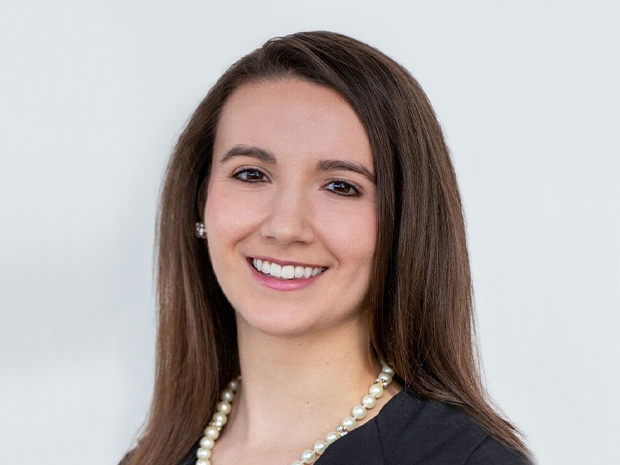As a result of the COVID-19 pandemic, the IRS released temporary expanded relief for cafeteria plans to remove barriers (such as financial impediments and administrative delays) applicable to testing for and treating COVID-19. These relief measures stemmed from the passage of the Coronavirus Aid, Relief, and Economic Security Act; Families First Coronavirus Response Act; and the Consolidated Appropriations Act. As a result of this legislation, the IRS issued optional provisions that an employer could adopt for its cafeteria plan in Notices 2020-15, 2020-29, 2020-33, 2021-15, 2021-26.
Under a cafeteria plan, which is governed by section 125, an employer is able to offer employees certain pre-tax benefits, including medical benefits (e.g., through health savings accounts (HSAs), health flexible spending arrangements (health FSAs), and health reimbursement accounts (HRAs) and dependent care assistance programs (DCAPs), among other benefits.
Employers who took advantage of the COVID-19 relief measures when operating their cafeteria plans have until Dec. 31, 2021 to ensure that any operational changes they followed are incorporated into their written plan documents. It is imperative to have the policies written into the plans by Dec. 31, 2021, to avoid losing the pre-tax benefits offered under the plan. Affected employers should contact their legal counsel to discuss the process for incorporating any necessary changes.
These rules also apply to Health FSAs and DCAPs that are separate plans from the employer’s section 125 cafeteria plan.
Below is a summary of the relief measures provided under each notice:
Notice 2020-15
Notice 2020-15 addressed health savings accounts (HSAs) and the requirements for the related high deductible health plan (HDHP). A HDHP must meet certain criteria to be categorized as such; for example, in 2020 and 2021 the indexed minimum annual deductible is $1,400 for individuals, or $2,800 for families. This notice allowed HDHPs to cover expenses for testing for and treating COVID-19 even if the costs did not exceed the required minimum deductible. Therefore, if an employer adopted these measures, individuals would not lose the ability to contribute to their HSAs.
Notices 2020-29 and 2020-33
In general, elections under cafeteria plans and standalone health FSAs or DCAPs are irrevocable and must be made upon an employee’s eligibility to participate in the plan, at the time of certain life events (e.g., marriage, birth or adoption of a child, divorce, etc.), or during the annual benefit enrollment period.
In 2020, the IRS issued Notices 2020-29 and 2020-33 to liberalize the health FSA and DCAP rules in response to the COVID-19 pandemic. These notices provided the following changes:
- Mid-year elections. Employees could revoke a health FSA or DCAP election, make a new election, or decrease or increase an existing election on a prospective basis in 2020 without a change in status. In addition, employees could enroll in employer-sponsored health coverage, change their plan selection or revoke an election mid-year. This additional flexibility was limited to plans that already allowed mid-year election changes.
- Grace periods. Employees could apply unused amounts in a health FSA or DCAP at the end of a grace period or plan year ending in 2020 to expenses incurred through Dec. 31, 2020.
- Carryovers. Health FSA carryovers were increased to $550 and could be used for expenses incurred through Dec. 31, 2020.
Employers were not required to implement these revised rules; but could choose to do so to help employees avoid forfeitures because of changes in their circumstances due to the pandemic. To implement the new rules, employers were to (1) notify employees of the plan changes, (2) operate their plans in accordance with the new rules and (3) adopt appropriate plan amendments by Dec. 31, 2021, which could be effective retroactively to Jan. 1, 2020.
Notice 2021-15
Notice 2021-15 was the most extensive of the relief provisions for cafeteria plans and expanded upon the relief offered under Notice 2020-29. For example, it extended the rules regarding carryovers for health FSAs in Notice 2020-29 that were effective for plan years ending in 2020 to include plan years ending in 2021, such that unused amounts as of Dec. 31, 2020 could be carried over to the 2021 plan year and unused amounts as of Dec. 31, 2021 could be carried over to the 2022 plan year. It also temporarily increased flexibility regarding carryovers for DCAPs, allowing DCAPs to use the carryover rules for plan years ending in 2020 or 2021.
A summary of other provisions under the notice are as follows:
- The mid-year election options from Notice 2020-29 were extended through plan years ending in 2021.
- Employees who ceased coverage during calendar year 2020 or 2021 could continue using their unused amounts on qualifying expenses incurred through the end of the plan year, in which they ceased coverage.
- Notice 2021-15 expanded the allowable expenses covered under health FSAs and HRAs to include over-the-counter drugs and menstrual care products.
- For DCAPs, the notice allowed employers to amend their plans to cover qualifying expenses for children up to the age of 14 (instead of 13).
Notice 2021-26
This notice clarified that amounts in a DCAP that were carried over to tax years 2021 or 2022 or that were used during tax years 2021 or 2022 as a result of an extended claims period should not be taken into account for purposes of determining the annual limit on contributions. The notice also clarified that unused DCAP amounts used in tax years 2021 and 2022 should continue to be excluded from income and, therefore, should not be considered employee wages.
Takeaways
To begin taking advantage of any of the COVID-19-related cafeteria plan relief measures, an employer needed to begin complying with them from an operational standpoint (including providing certain notices to employees) after the IRS released its guidance. However, because plans are to be operated in accordance with written plan documents, employers need to ensure that any measures they put into practice are reflected in their plan documents by Dec. 31, 2021. To the extent that an employer has put one or more of the above relief measures into practice, they should (1) contact the plan’s third-party administrator to confirm all operational changes and (2) provide their legal counsel with a summary of the administrative changes so that legal counsel can amend their plan and, if necessary, any related documents, e.g., summary plan descriptions. Failure to incorporate these provisions by Dec. 31, 2021 could jeopardize the tax benefits received by these measures and result in liability to the employer and any employees covered under the cafeteria plan.




